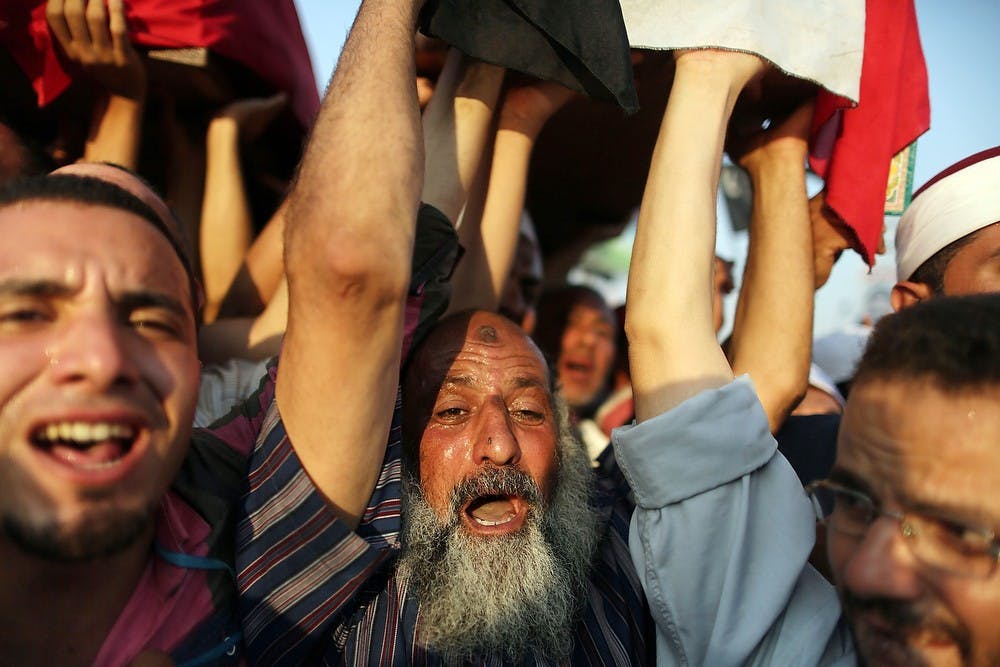As economics senior Ayush Gupta explored the streets of Egypt last month, a rebel tour guide in tow, he took in two things: the illegal street vendors who lit up the night and the contempt many Egyptian people had toward their government.
“The people were very, very unhappy,” Gupta said. “They didn’t have enough money, and they say buildings had high taxes.”
Thousands of protesters have gathered in Cairo’s Tahrir Square and its surrounding cities, protesting against Islamist President Mohamed Morsi and leaving one student from Kenyon College in Ohio dead in Alexandria as a result. Despite Morsi’s removal by military forces last week, demonstrations march on, leaving MSU students studying abroad in Egypt with no choice but to evacuate.
Although it was difficult to anticipate the growth of the protests, Brett Berquist, executive director of the Office of Study Abroad, said the six students staying in Egypt were given direction prior to their evacuation.
“We knew there would be demonstrations at the one-year anniversary of (Morsi’s) election,” Berquist said. “The students had been given instructions to shelter in place, get extra groceries and spend all weekend in their apartment.”
Berquist said the breaking point for MSU came with the death of the American student. Although one MSU student returned home, a few others will continue their studies in Jordan or Morocco.
Tension has risen in the country since 2011, when protests against former Egyptian President Hosni Mubarak ensued in Cairo. Mubarak resigned and Morsi took over, becoming Egypt’s first democratically elected president; but Gupta said the people wanted more.
“(Morsi) didn’t want to do anything new or reform anything,” he said. “The people felt they weren’t supported.”
Several MSU students came to Egypt as a part of the Arabic Flagship program, a yearlong stay to help students learn Arabic.
Matthew Rynbrandt, the program’s associate director, said Morsi’s removal from office also brought some tension back home.
“It deteriorated much more than people expected,” Rynbrandt said. “When the military stepped in was the real turning point, as far as the decision process goes. Up until last week, the military had just stayed neutral.”
Arabic Flagship students arrived in Egypt a week before protests began, which Rynbrandt said became a blessing in disguise when they had to be uprooted.
“In some ways, it happened at a decent time, where they weren’t ripped away from relationships and the professors they would have had for months,” he said.
Despite the risk, Berquist said the debacle ultimately allowed students to experience a part of Egyptian culture and values.
“While it was a challenging time to be in the region, it’s also a fascinating time for students to see how it works,” he said.
Support student media!
Please consider donating to The State News and help fund the future of journalism.
Discussion
Share and discuss “Protests in Egypt affect students abroad” on social media.







